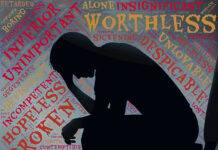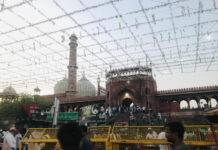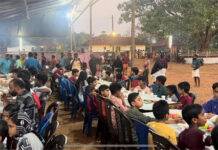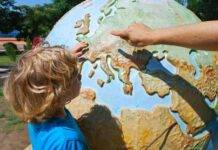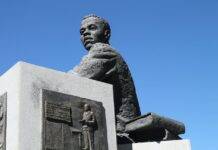
I do not know why these days I keep recalling my Muslim friends. At times, I am worried; I wish to enquire whether they are fine, and feeling positive. And then, there are moments when I feel that I am guilty, and being a ‘Hindu’, I would never be able to understand them: their pain, their psychic trauma and marginalization. Can I show my face, and arouse their confidence in me? I ask myself.
Yet, I know that there is a possibility even in the experience of pain; possibly, as I assume, it has further humanised them; and they would always embrace me-the way my two school friends – Muziruzzaman and Rizaul- entered my inner world, and made me feel that friendship has no identity marker, it is tested in difficult times, and it is only about love, empathy and care. Mushir was like Mahananda – the river that flows through my home town; and Rizaul was an open window; he aroused my interest in Bengali literature. They are no more; but they live in my inner world.
Khalid, where are you?
This morning as I was coming out of my class, something happened to me. I became terribly anxious to know about Khalid – a young/poetic/spiritual Kashmiri boy who once studied at our university. Where is he? Is he fine? If he is not in Kashmir at this moment, how would he contact his old parents in Srinagar? I felt like finding him, talking to him, and touching his hands, and whispering in his ears: ‘Believe me, I am here with you.’
And then, where is that Kashmiri girl – a sensitive student with cultural fineness, poetic wonder, and academic zeal? I am not seeing her at the university.Is she fine? Or is it that she is tormented, lonely and afraid?
I have switched off the television channels. I have tried my best not to see the celebration, and hear the stimulant live commentaries on it: men and women dancing, and distributing sweets, and conveying a message to the hated ‘other’: ‘We are Hindus, and in our Hindu Rashtra, we would no longer tolerate the Nehruvian weakness; we would not ‘appease’ and ‘pamper’ you; instead, every moment we would make you feel your location. The abolition of the article 370 is just the beginning; and now at Ayodhya the temple is coming….’
As I do not follow the crowd, something positive happens to me even in these dark times. I experience a sense of gratitude. I feel I am lucky. My Muslim friends have made me realise the hollowness of stereotypes; I have transcended the otherness of the other; our shared humanity has saved me.
You have saved me, dear friends
I have not talked to Tariq for quite some time. Tariq, I urge you, please come; let us have coffee together; and let me continue to learn form your struggle, your theatre activism, your laughter, your humour, your unconditional love. Even if this brigade of ‘patriots’ want us to be separated, our mutual trust is powerful enough to resist it.
Where is Asif – my student-friend? A struggling/determined/ honest boy from Bihar who took admission in the university, transformed his life, joined the police service, and became an immensely honest IPS officer. Asif, how are you? How do your colleagues look at you? Is it a gaze that objectifies you, suspects you, marginalizes you? Do you have to continually prove your ‘nationalism’? Believe me, I am concerned. Arshad, I have always admired your scholarship. Retain your clarity. And yes, your wife Nidhi and son Rehan are with you. Take care, Arshad.
And Irfan, do you remember the book on Tibetan Buddhism that you gave me as a gift, when I was passing through a difficult turning point in life? How is Zarine–your life-companion? And how is Khadija – your lovely daughter? Zarine, you must be worrying how your daughter would grow up in this toxic milieu–whether at schools her teachers and classmates would continually remind her with a high degree of symboloic violence that she is a Muslim, and hence she is not like them. I really do not know how she would grow up in ‘Hindu India’.
Sabiha, have you survived after the NRC in Assam? I long for your song; I see hope in your music; I see Brahmaputra in your invocation of Bhupen Hazarika. Under the rapidly changing political and psychic transformation in our society, would it be possible for you to flow like a river?
And Afreen, believe me, when you joined the university, for quite some time I didn’t know that you were a ‘Muslim’. I used to call you Arati. You laughed, and ignored your professor’s mistake. You are from Kolkata; and we loved to talk about the city–its literature and cinema and streets Yes, Afreen, I am waiting for the packet of Darjeeling Tea that, I am sure, you would bring for me from Kolkata. You would also tell me the story of Dhaka, Bengali cuisine, the Durga puja festival, and the changing nature of the streets in Kolkata.
Shareena, tell me the stories of monsoon showers in Kerala, tell me about your teaching at Jamia Millia, and tell me how you find yourself amid this chaos. Ruman, you worked on Muslim mothers and their psychic stress in this age of uncertainty and fear. Remember the Safdarjung Tomb in Delhi? We all reflected on the city and its memory. The gift that your photographer husband gave me-a marvellous picture of the monument–is with me.
And then, there is another Irfan Ahmad. I know that he is in Germany. Yet, he is so near. The other day I happened to meet his father in a hospital in Patna. What was there in his smile, in his blessings? It was pure and sublime. Would the noisy parliamentarians ever understand it?
Sana and Umer, I was there at your wedding ceremony. I find the fragrance of literature, poetry and spirituality in your journey. The tales of the Himalayas, the poetry of Rumi, the stories of Manto , and the epic of non-violent Gandhi– recall the moments both of you experienced with a ‘Hindu’ professor. Yes, as I see both of you, I do not see Talibanization; I do not see ‘stone pelters’; instead I experience peace in a violent world.
Yes, my Muslim friends, you have saved me. I have seen beyond the abstraction of categories like ‘Islamic fundamentalists’, ‘jihadis’ and ‘terrorists’. And hence, I have not joined the crowd. I have not yet become a militant ‘Hindu nationalist’. Because I was lucky to find all of you in my life; you have made me realise that we are walking together; and collectively we have to search for a better world-beyond the violent politics that divides, fragments and spreads poison.
Avijit Pathak is Professor of Sociology at JNU, New Delhi.

